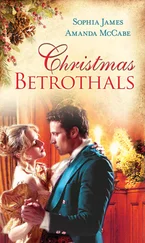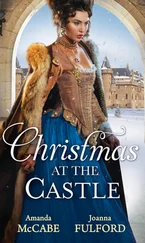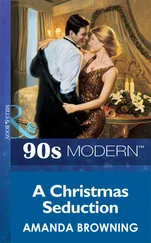“Oh, Julian, isn’t it magnificent?” I said, hugging Kit’s carryall to me as I took in every glittering detail.
“I suppose so.” Julian tapped an index finger against his lips and frowned at the Chippendale chairs. “I’m trying, but I can’t picture Kit in this setting. Can you?”
I shrugged. “Which Kit? The one I found or the one with the Savile Row tailor?”
“Good point,” said Julian.
The double doors opened in concert, as if on invisible strings, and a voice sounded from the mirrored hallway. “The brunch guests will be arriving within the hour, Budge. See to it that the drive is kept clear.”
“Very good, my lady.”
A woman glided into the room and the double doors closed behind her. She was tall and slender, dressed in a full-skirted, floor-length gown of ivory satin topped with a form-fitting, cropped satin jacket. Her dark brown hair was swept upward in a casual arrangement of soft waves that must have taken hours to perfect. Diamonds glittered on her breast and dripped from her earlobes.
There was no mistaking her identity. She was a good deal older than Kit, but the family resemblance was still strong. Her pale, long-fingered hands were exactly like his. She had the same high cheekbones and curving lips, but her eyes were a faded powder-blue and her expression was curiously lifeless. She seemed more remote standing before us than Kit had lying unconscious in his hospital bed. If Kit’s beauty drew people toward him, Lady Havorford’s held them at bay.
I noted the similarities and differences, then murmured, “You have Kit’s hands.”
“Kit?” Lady Havorford regarded me coolly. “A distasteful sobriquet. While you are in my home you will refer to my brother as Christopher. Unless, of course, there’s been some mistake—”
“There’s no mistake,” said Julian, stepping forward. “I’m sorry to be the bearer of bad news, Lady Havorford, but Ki—Christopher is gravely ill. He’s at the Radcliffe Infirmary, in Oxford. He’s been in a coma for more than a week.”
“I see.” Lady Havorford motioned for us to sit on the sofa, then glided over to sit gracefully in the chair nearest the fire. Her gaze drifted to Kit’s carryall as I placed it on the floor at my feet, but if she recognized it she gave no indication. “Did Christopher ask you to come to me?”
“He wasn’t able to,” Julian replied.
“Then how did you find me?” she asked.
I gave Julian a quick, puzzled glance. Lady Havorford’s questions were beginning to seem somewhat odd. She hadn’t asked about the nature of Kit’s illness or his prognosis. She hadn’t asked how or where Julian and I had come to know her brother or what our relationship was to him. It was hard to tell what was going on behind those powder-blue eyes, but so far she’d betrayed no sign whatsoever of sisterly concern.
“It’s rather an involved story, Lady Havorford,” Julian told her. “Suffice it to say that Ms. Shepherd and I made certain inquiries on your brother’s behalf which led us to Saint Joseph’s Church in Stepney. The vicar there led us to you.”
A flicker of annoyance crossed Lady Havorford’s face, but she said nothing.
“Your brother will need someone to look after him while he convalesces,” Julian prodded gently.
“I don’t think Christopher would care to be cosseted by me,” said Lady Havorford. “He renounced his family four years ago, when he handed over his inheritance to that perversely popish little priest in Stepney.”
I opened my mouth to protest, but snapped it shut when Julian’s foot nudged mine.
“There are those,” he said carefully, “who believe that your brother should be confined for his own protection, once he recovers from his present, physical ailment. Do you agree with them, Lady Havorford?”
I leaned forward, eager for her answer, and watched in fascination as her eyes began to glisten. A moment later, as if of their own accord, two perfect pear-shaped tears rolled down her motionless face.
“My brother may very well be insane,” she said evenly, “but then, so might you be, if you’d killed your own father.”
19
Lady Havorford surveyed our shocked expressions with cool indifference. “You don’t believe me. No one ever does. But my brother knows the truth and so do I.”
“Would you be so kind as to share the truth with us?” Julian asked.
“Are you certain you want to hear it?” she returned.
“We are,” said Julian.
Lady Havorford carefully blotted her tears with a lace-edged handkerchief drawn from the sleeve of her satin jacket, then rose to her feet. Her gown rustled as she glided to the mahogany desk, where she lifted the receiver of a white telephone. She spoke into it briefly before returning to her chair.
“We shan’t be disturbed,” she said, adding vaguely, “It will be the first time in ten years that I’ve left it to my husband to welcome our guests.”
I look from her impassive face to the handkerchief twisted tightly in her clenched fists and wondered queasily what she’d say next. I didn’t believe for one minute that Kit had killed anyone, much less his own father. Perhaps, I thought, gazing at those white-knuckled hands, it wasn’t Kit who was insane, but his sister.
“The curious thing,” Lady Havorford mused aloud, “the thing that throws everyone off the scent, is that Christopher grew up adoring Papa. Sir Miles was a hero, you see, a highly decorated member of the most elite corps in Bomber Command.”
“Your father was a Pathfinder,” I guessed, glancing at the canvas carryall.
Lady Havorford seemed unsurprised by my remark. “You’ve no doubt heard of the Pathfinder Force lectures Sir Miles gave at Oxford.”
“Y-yes,” I stammered, as another piece of the puzzle dropped into place. Kit’s father had indeed been a university lecturer, just as he’d told Luke Boswell. “We knew he’d given the lectures, but we didn’t know what they were about.”
A slight frown creased Lady Havorford’s smooth brow. “How, then, did you know that my father was a Pathfinder?”
“We didn’t,” I said, “but… here, let me show you what Christopher had with him when he was admitted to the Radcliffe.”
I took the water-stained suede pouch from the carryall, teased open the drawstrings, and upended it over the gilded table beside Lady Havorford’s chair. As the medals spilled onto the table, she caught her breath, then pursed her lips in a disapproving frown.
“Papa’s medals,” she said, laying the handkerchief aside. “They were the only things Christopher would accept from the estate, and just look what a mess he’s made of them.” Her hands hovered briefly over the tangled pile of decorations. Then, with swift, precise movements, she began separating one from another, smoothing the wrinkled ribbons and laying them out in orderly lines. The exercise seemed to stir more memories, for she continued to speak of the distant past.
“We lived in the country when Christopher was small,” she said. “He had a horse, called Lancaster, after the first bomber Papa piloted. Christopher would gallop Lancaster along the bridle path, dropping his make-believe bombs neatly on make-believe submarine bases, then dash back to the manor house to tell Papa about his precision-bombing runs.”
She paused to examine her display with a critical eye before placing the golden eagle above the other medals, bars, and badges on the table.
“It sounds an idyllic childhood,” Julian prompted.
“It was,” Lady Havorford agreed. “Then Mother died, and when Papa remarried he sold our country house and we came to live in London.” Her voice softened. “It broke Christopher’s heart to give up Lancaster, but he never complained. As I said, he adored Papa.”
Читать дальше








